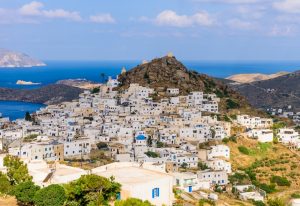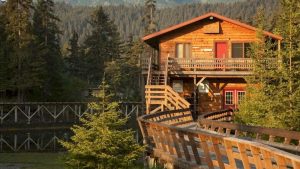EDITORIAL
Cultivating Sustainability and Self-Sufficiency With An On-Site Farm

As my management team and I brainstormed ways to make our resort more sustainable and self-sufficient, there was an opportunity right before our very eyes.
Alma Resort commands some 30 hectares of lush beachfront on Vietnam’s pristine Cam Ranh peninsula. Why not use some of our grounds to produce our own fruit, vegetables, herbs, and chicken eggs? For us, it was a no brainer.
Within a matter of days, our talented landscape manager Ngo Duc Thinh and his team of green thumbs went to work cultivating our very own onsite farm, that now affords organic, zero-kilometre vegetables, fruits, herbs and eggs for guests’ meals and beverages. And within a matter of weeks, Mr Thinh and his team transformed parts of our resort into a 1000sqm nursery garden, a 260sqm chicken farm, and two herb gardens that are 180sqm and 230sqm.
Situated on the northern end of Alma’s grounds, a short walk from the Active Youth Club for teenagers, the nursery garden is thriving with bananas, coconuts, papaya, squash, passionfruit, sunflowers, daises and more. Adjacent to the nursery garden, the chicken farm is currently home to a growing brood of 16 hens, two roosters and 16 chicks. Located just outside our beachfront restaurant Atlantis, with panoramic views of Long Beach, the 180sqm herb garden is brimming with mustard leaves, morning glory, red and green chili peppers, Vietnamese basil, lettuce, green onions, white radish, bok choy, tomatoes and more. With the ocean in the backdrop, I’d bet it’s one of the most scenic herb gardens you will ever chance upon. The 230sqm herb garden is near our resort’s fine dining Italian restaurant La Casa.
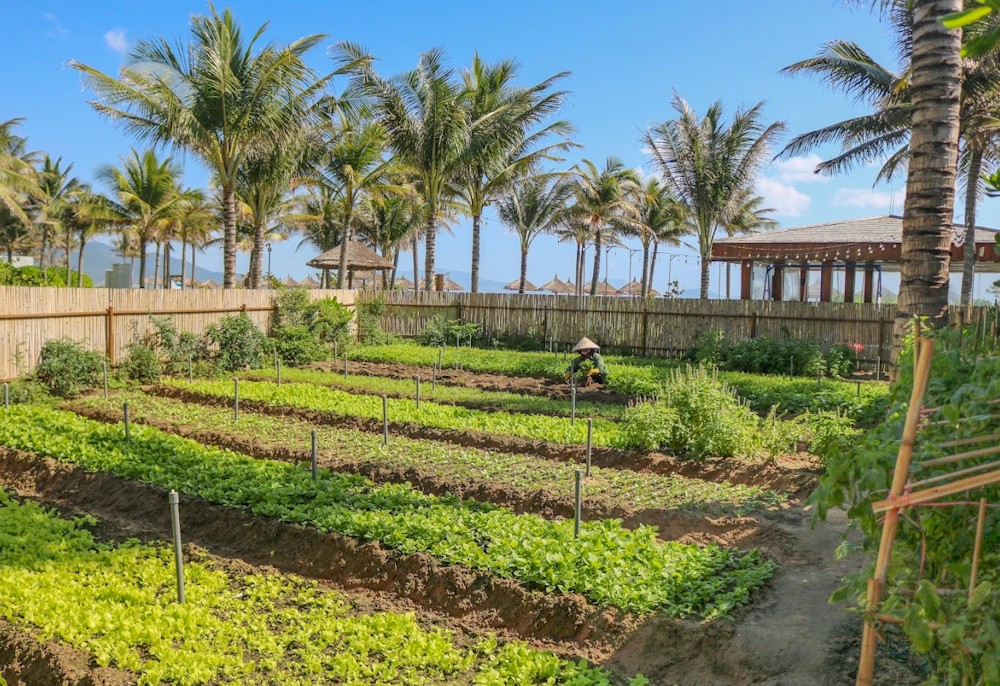
Alma’s green thumbs have transformed parts of the 30-hectare resort into a 1000sqm nursery garden, a 260sqm chicken farm, a 230sqm herb garden and another 180sqm herb garden (pictured).
Currently all our farm’s produce is directed to our resort’s restaurants.
Bananas, coconuts and eggs, for example, are served during breakfast at Alma Garden restaurant. Lettuce and mustard leaves are included in salads and coconuts are provided as drinks at Atlantis. La Casa’s traditional caprese salad features tomatoes from the herb garden along with locally produced mozzarella cheese.
Whether you sample the lettuce, tomatoes, basil or eggs, we believe you can really taste the difference with our organic produce picked that day.
Leftovers from our resort’s kitchens are used as compost and the farm is watered with recycled water.
We offer complimentary garden tours for the whole family, with staff sharing fruitful tips on how to cultivate a veggie patch at home. Children also learn about how to care for chickens.
We have exciting plans to further expand the farm, and to host cooking classes by the farm, where guests pick and clean their ingredients to cook their own healthy meals.
The feedback from staff and guests alike has been wonderful.
Mr Thinh has let our management team know that he feels so proud to be putting our resort’s land to good use by creating our very own farm and embracing the ‘farm to table’ movement. It’s so rewarding for his team of gardeners to see how the kitchen staff love picking produce from the farm, and to see guests of all ages take tours of the farm with interest and curiosity.
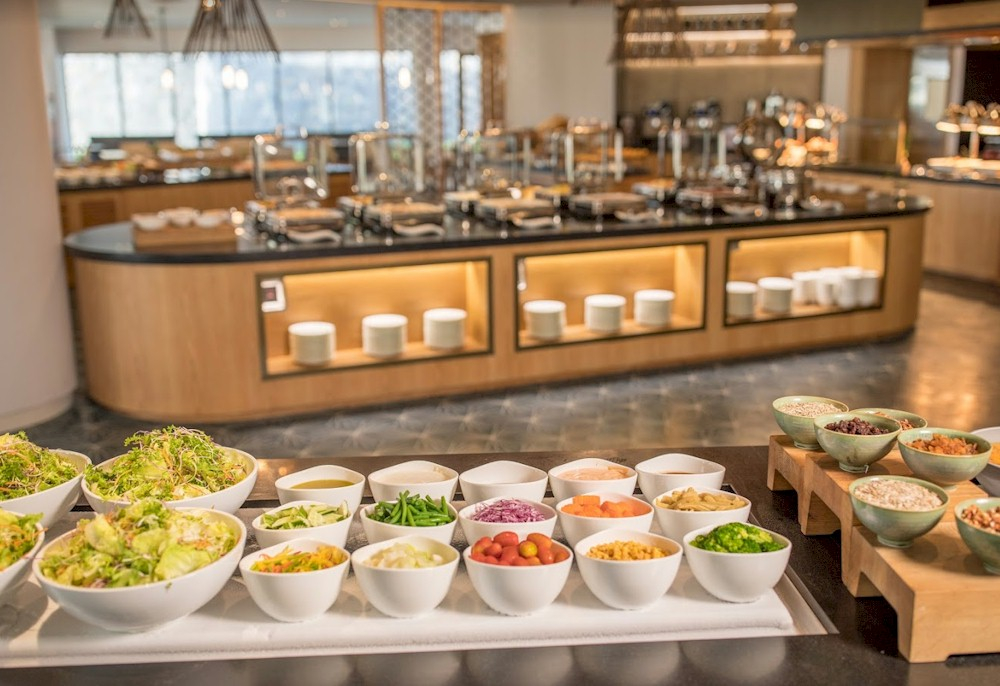
Alma Garden serves bananas, coconuts, eggs and more from the farm to guests during breakfast.
Guests have also enjoyed rummaging through the farm and learning more about how to grow your own vegetables, herbs, and fruit. Mr Thinh says he gets a kick out of asking guests what their favourite plants are and giving them advice on how to plant and care for them depending on different weather conditions.
Establishing an onsite farm need not be daunting for hotels and resorts. If you have the land available, I’d recommend starting out with some herbs and vegetables that are easy to grow and progressing from there. From small things, big things grow.
Yet of course to establish a thriving farm you need to tap into expertise and there must be unbridled enthusiasm for the project. Equipped with 19 years’ of professional experience in landscaping, Mr Thinh has a huge passion for his field, and genuinely thrives on doing great things to bring sustainable values to Alma, our environment and society. He’s always been a green thumb and vividly remember propagating confetti and plumeria branches as a young boy. He was particularly fascinated with bonsai trees and would watch numerous TV programs about how to grow them and tend to them.
Mr Thinh believes that to be a good artisan, you must strive to work harder and improve your skills daily. Before working as a professional gardener at high-end resorts, he was a bonsai tree artisan and landscaping consultant for villa areas. He says he loves creating environmentally friendly spaces, amid clean air, that encourage our guests to connect with nature. Mr Thinh and his colleagues water with the right technique, prune trees, monitor their growth, check for pests and diseases, determine the right dose of organic fertiliser and so much more. He likens his team to artists painting a picture that comes together beautifully, albeit so green.
Our resort also holds landscape competitions every two months to recognise and reward gardeners for their hard work. It’s important they are acknowledged for the excellent work that they do.
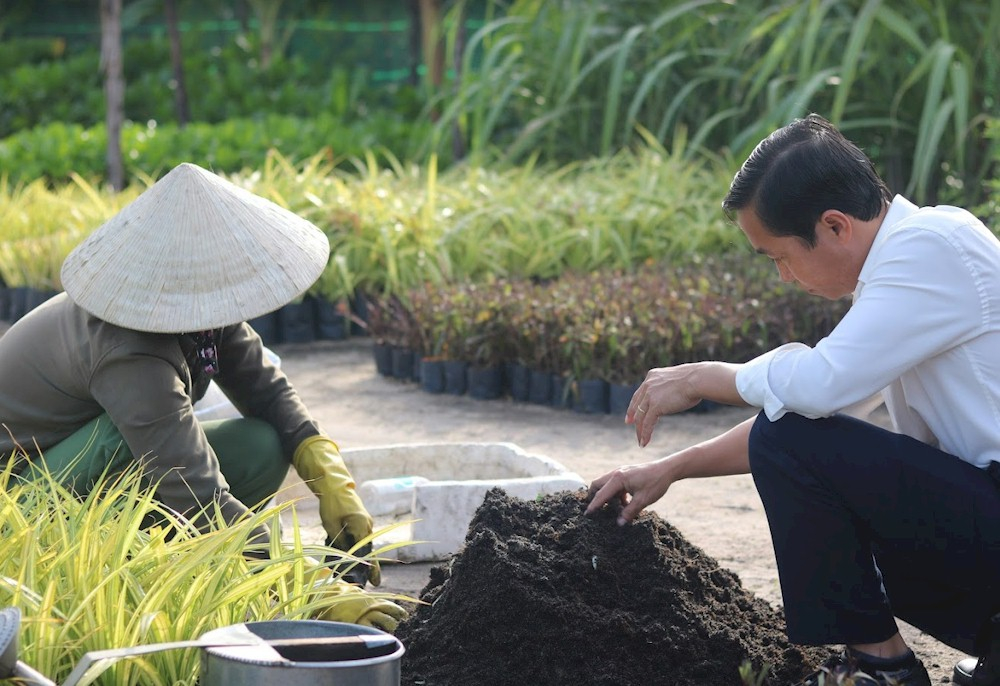
Alma’s landscape manager Ngo Duc Thinh and his team have demonstrated genuine enthusiasm for cultivating a sustainable and self-sufficient onsite farm.
There’s a lot of talk in the hospitality industry about going green but it’s important to walk the talk and this is yet another initiative at Alma that helps create a more sustainable holiday for guests.
Our resort’s ‘hotel as farm’ efforts follow numerous initiatives including plans to implement Vietnam’s most ambitious solar power project for a hotel yet, and the appointment of a sustainability officer.
In addition to engaging staff in sustainability initiatives across three staff committees focused on ‘green products’, ‘innovation and solutions’ and ‘people and partnerships’, Alma has other measures in place to reduce its carbon footprint including a water treatment plant, electric buggy station, recycling in its garbage room and the resort’s transition to paperless solutions due to Alma App.
The solar power project involves the installation of 4576 solar panels totalling 12,500 square metres on the roofs of the resort’s 196 pavilions, buildings housing 384 suites, lobby lounge, spa, gymnasium and staff building. With a capacity of 2517 kilowatts peak – the rate at which it generates energy at its peak performance on a sunny day – the system will fuel between a quarter to almost half of Alma’s energy needs, depending on occupancy. It’s estimated this system will save Alma up to USD 16.21 million (VND 376 billion) in electricity bills over the next 25 years and reduce Alma’s carbon dioxide (CO2) emissions by up to 70,369 tonnes over a 25-year period.
We hope to set a strong example with solar power. With the weather we have in Cam Ranh, with more than 300 sunny days a year, it makes total sense for us to take advantage of an abundance of sunlight and embrace a more sustainable and environmentally-friendly alternative to electricity.
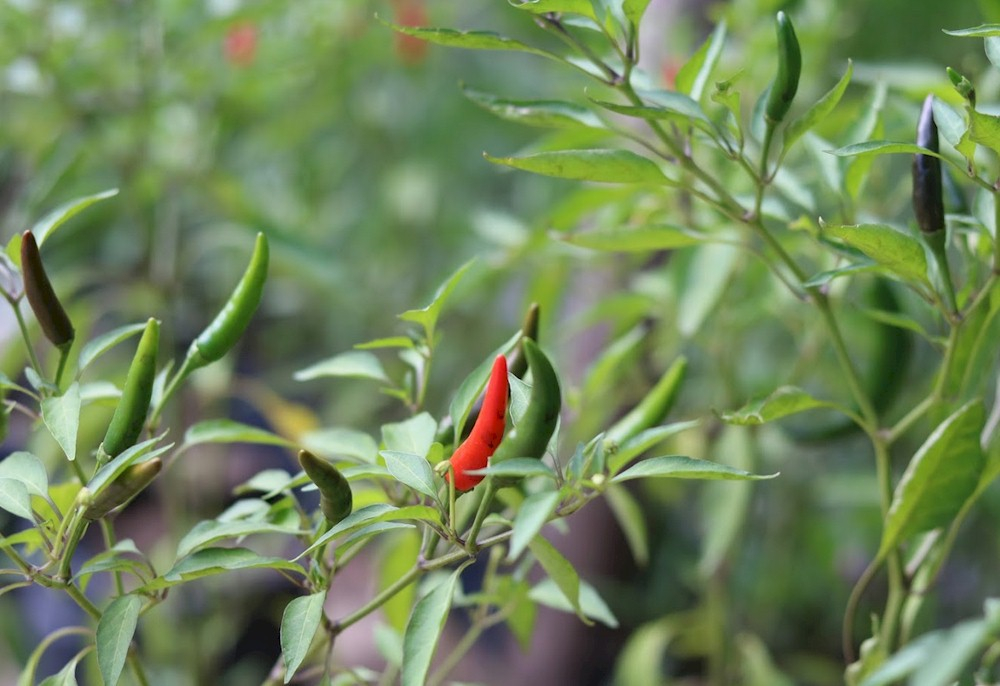
Chilies from Alma’s farm.
To look after the environment, at Alma we believe that sustainability is an area in which we must engage our staff. We have employed a sustainability officer who oversees our resort’s sustainability programs, including three staff committees focused on ‘green products’, ‘innovation and solutions’ and ‘people and partnerships’. Each committee is embarking on their own projects.
For example, the Green Products Committee is focusing on the likes of garbage segregation and tree planting, the Innovation and Solutions Committee is looking after paperless check-ins and the implementation of solar power, and the People and Partnerships Committee is working on community initiatives including generating donations for green projects and partnering with Fulbright students to conduct research. These efforts are also inextricably linked to our resort’s core values, demonstrating we show care, respect, integrity, responsibility and passion towards our environment and community.
During the global pandemic Alma launched a mobile app that opened the door to contactless communication with guests and staff in real-time, and marked a transition to more sustainable solutions by offering menus, resort maps and more digitally.
Available for download on Android, Apple, Windows and Amazon devices, the ‘Alma Resort’ app offers menus, promotions as well as live stream broadcasts and information about events. In addition to offering an array of menus for Alma’s restaurants, bars, in-room dining and Le Spa and promotions and vouchers on food and beverage, spa services, beauty products, karaoke and items at Alma’s mini supermarket ‘Alma Mart’, the Alma app also includes ample opportunity for app users to provide feedback about the resort and its services.
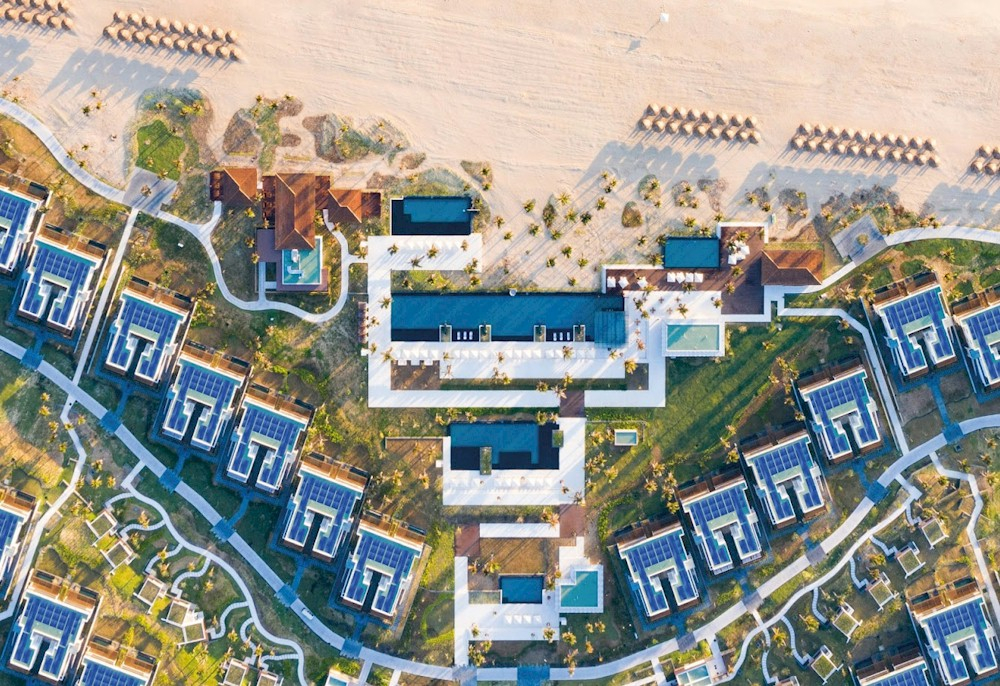
Alma is installing what is believed to be Vietnam’s most ambitious solar power project for a hotel yet.
Like our solar power project, we believe the app is a game-changer for Vietnam’s hospitality landscape, and all the more remarkable because Alma muscled its way into the realm of mobile app technology at the time alongside predominantly major global hotel brands.
Alma has other measures in place to reduce its carbon footprint including a water treatment plant, electric buggy station, and recycling in its garbage room. The 325sqm water treatment plant deploys a reverse osmosis system to provide 70,000L weekly of drinkable water and ice for all the resort’s kitchens. The garbage room processes about 250 kilograms of garbage a day, including compostable waste and recyclables, reselling an average of, for example, 110 litres of cooking oil weekly to non-food businesses so that it is recycled. The resort’s 360sqm buggy station’s 36 electric buggies each take an average of six hours to charge.
When it comes to sustainability, even the smallest efforts can, over time, have a large impact. As more and more hotels and resorts strive for sustainability and self-sufficiency, Alma is one of a growing number of properties to embrace the “farm to table” movement by establishing its own farm. Cultivating an onsite farm has an array of benefits ranging from serving healthy, zero-kilometre food to guests, to education and staff empowerment. I hope that what Alma is achieving on the sustainability front can inspire other hotels and resorts to work to confront the challenges afflicting our environment. From small things, big things grow.

